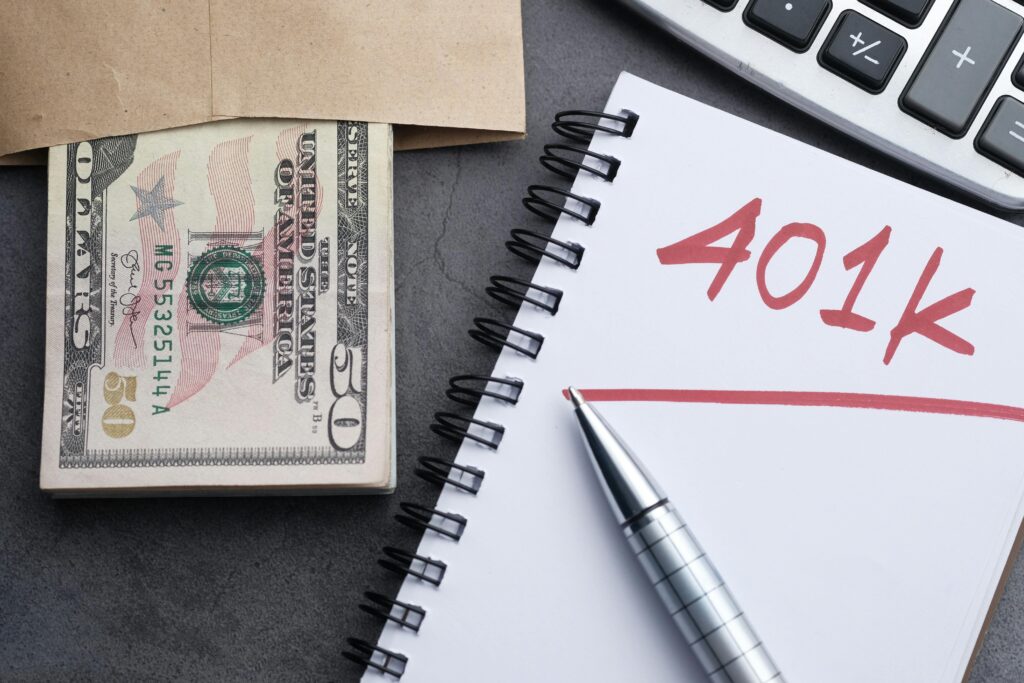401(k) - Are You Taking Full Advantage?

If your job offers a 401(k) retirement plan, congratulations—you’ve got one of the most powerful wealth-building tools available. But here’s the problem: most people don’t use it correctly.
Too many workers under-contribute, ignore employer matching, or invest too conservatively—leaving thousands of dollars on the table. The truth? If you max out your 401(k) and invest wisely, you could retire decades earlier than your peers.
So, let’s break it down: what makes a 401(k) so powerful, and how do you actually take full advantage of it?
What Makes a 401(k) So Valuable?
A 401(k) isn’t just a fancy savings account—it’s a tax-advantaged, employer-sponsored investment vehicle designed to grow your money exponentially.
Here’s why it’s a game changer:
Tax Benefits: Your contributions are pre-tax, meaning they lower your taxable income today while growing tax-deferred.
Employer Matching: Free money. If your employer offers a match and you’re not contributing enough to get it, you’re giving away free money.
Compound Growth: Because your money is invested in stocks, bonds, and mutual funds, it has the potential to grow exponentially over time.
Let’s put that into perspective. Imagine you start at age 25, contribute $500/month, and your investments earn an average 8% annual return. By the time you’re 65, you’d have over $1.5 million.
And if your employer matches 50% of your contributions? That number jumps to nearly $2.3 million.
So, why do so many people fail to take advantage of this?
The Biggest Mistakes People Make with Their 401(k)
A shocking number of people don’t even contribute to their 401(k) retirement plan. Others contribute too little or invest poorly. Here’s where people go wrong:
🔹 Not contributing enough to get the full employer match. This is free money, and not taking advantage of it is like turning down a raise.
🔹 Contributing too little overall. The IRS allows you to contribute up to $23,000 in 2024 ($30,500 if you’re over 50). The more you put in now, the more you have later.
🔹 Investing too conservatively. Many people default to low-growth investments because they fear risk—but if you’re young, you should be heavily invested in stocks for maximum growth.
🔹 Cashing out early. Withdrawing from your 401(k) before retirement comes with a 10% penalty plus taxes.
How to Maximize Your 401(k) Retirement Plan
Most people think of a 401(k) as just another line item on their pay stub. Money goes in, and someday—far in the future—it’s supposed to come back out, hopefully with a few extra zeros. But a well-optimized 401(k) isn’t just a savings account—it’s your ticket to financial freedom decades earlier than most people.
Imagine two employees at the same company: Alex and Jordan. Both earn $75,000 per year and have access to the same 401(k) plan, but they handle it very differently.
Alex contributes just enough to get the employer match (5% of salary) and never increases contributions beyond that. Jordan, on the other hand, starts at 10%, bumps it up by 1% every year, and takes full advantage of the match.
Fast forward 30 years, and the difference is staggering.
• Alex ends up with about $750,000. Not bad, but not enough for a comfortable early retirement.
• Jordan? Thanks to consistent contributions, compound growth, and maxing out the employer match, their balance is closer to $2 million.
Same job. Same salary. The only difference? Jordan actually maximized their 401(k). So, how do you become a Jordan, not an Alex?
First, don’t leave free money on the table. If your employer offers a 100% match up to 5%, and you’re only contributing 3%, you’re literally turning down free cash.
Next, increase contributions over time. The easiest way? Bump up your contributions by 1% every year. Most people won’t even notice the difference in their take-home pay, but over time, that small increase adds up to tens (or even hundreds) of thousands of extra dollars.
Invest wisely. Many employees stick with default investment options—often low-growth, conservative funds. But if you’re decades away from retirement, your money should be heavily invested in stocks for maximum long-term growth.
Never touch it early. The number of people who cash out their 401(k) when switching jobs is shocking. Not only do they pay taxes and a 10% penalty, but they also wreck their long-term growth. Even withdrawing $10,000 early could cost you $100,000+ in lost compound interest over time.
A 401(k) isn’t just a retirement tool—it’s one of the few investment vehicles that can turn middle-class earners into millionaires. But only if you use it to its full potential.
Traditional 401(k) vs. Roth 401(k): Which One is Better?
Ask 10 people whether you should choose a Traditional or Roth 401(k), and you’ll get 10 different answers. The truth? There’s no single right choice—it depends on your financial situation now and where you expect to be in the future.
Let’s break it down with a simple story.
Meet Emily and James. Both are 30 years old, earn $80,000 per year, and contribute $10,000 annually to their 401(k). Emily chooses a Traditional 401(k), while James opts for a Roth 401(k).
Emily’s Traditional 401(k)
Emily’s contributions are pre-tax, meaning her taxable income is lower today. She pays less in taxes now, but when she retires, she’ll owe taxes on every dollar she withdraws.
James’ Roth 401(k)
James pays taxes on his contributions today, so his take-home pay is slightly lower now. But in retirement, every dollar he withdraws is 100% tax-free.
Fast forward 30 years, and both have $1 million in their 401(k). But there’s a catch—Emily still owes taxes on her withdrawals, while James gets to keep every cent.
So, which one is better? It depends.
- If you expect to be in a lower tax bracket in retirement, the Traditional 401(k) might be better.
- If you think your tax rate will be higher in the future, the Roth 401(k) makes more sense—you pay taxes now and withdraw tax-free later.
For many people, the best move is to split contributions between both to hedge against future tax changes. At the end of the day, the only bad move is to NOT contribute to one of them. Take advantage!
Max Out Your 401(k) and Build Wealth Faster
If you’re not fully taking advantage of your 401(k), you’re leaving serious money on the table.
It’s not just about retirement—it’s about financial freedom. The choices you make today—how much you contribute, how you invest, and whether you take advantage of employer matching—can mean the difference between a stress-free retirement or struggling to catch up later in life.
🔹 Contribute at least enough to get your employer match (free money!).
🔹 Increase your contributions over time—aim for 15%+ of your salary.
🔹 Choose high-growth investments and don’t withdraw early.
Even if you’re just getting started, the key is consistency. The earlier you begin maximizing your 401(k), the easier it becomes to build wealth over time.
